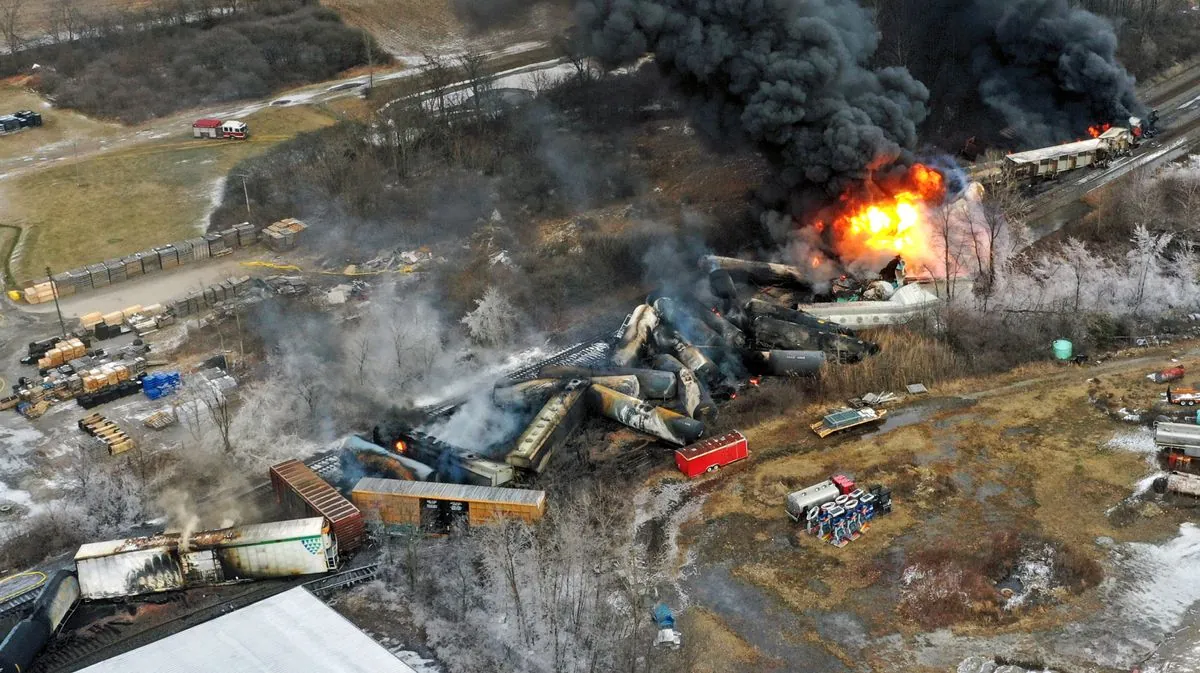A federal judge has given final approval to a $600 million class-action settlement offered by Norfolk Southern to residents within a 20-mile radius of the February 2023 train derailment in East Palestine, Ohio. The decision, made on September 25, 2024, marks a significant development in the aftermath of the environmental disaster that occurred approximately 19 months ago.
The settlement, which covers approximately 55,000 claims, has been met with mixed reactions from the affected community. While the majority of residents have accepted the terms, a vocal minority has expressed concerns about the adequacy of the compensation and the potential long-term health impacts of the derailment.
Under the terms of the agreement, residents living within 2 miles of the derailment site can receive up to $70,000 per household for property damage and an additional $25,000 per person for health-related issues. Compensation amounts decrease for those living farther from the epicenter of the incident.
The Environmental Protection Agency (EPA) has been responsible for monitoring and reporting environmental contamination in the area. However, some residents have questioned the transparency and comprehensiveness of the test results. This skepticism is rooted in the complex nature of environmental disasters and their potential long-term effects on public health.
The incident has highlighted the importance of various environmental protection measures, including the Clean Air Act, the Safe Drinking Water Act, and the Comprehensive Environmental Response, Compensation, and Liability Act (CERCLA). These regulations play crucial roles in addressing hazardous waste sites and protecting public health.
"These attorneys were bullying people and telling them they were never going to get any money if they didn't take this. People felt backed into a corner."
The settlement approval process has raised questions about the application of the precautionary principle in environmental decision-making, which emphasizes caution in the face of uncertain risks. Some residents argue that more time is needed to fully understand the potential health consequences of the derailment and subsequent chemical release.
The incident began on February 3, 2023, when a Norfolk Southern train derailed, causing tank cars containing hazardous chemicals to rupture and spill their contents. The situation was exacerbated three days later when officials made the controversial decision to intentionally release and burn vinyl chloride from five damaged tank cars, citing explosion risks.
In response to the disaster, Norfolk Southern has provided $108 million in assistance to the community and funded an extensive cleanup operation. The company has pledged ongoing support to help the area recover and thrive.
As the community looks toward the future, environmental remediation efforts continue to address soil, groundwater, and surface water contamination. The incident has also sparked discussions about the need for stricter regulations on hazardous materials transportation by rail and improved emergency response protocols.
The East Palestine derailment serves as a stark reminder of the potential consequences of industrial accidents and the importance of robust environmental protection measures. As residents begin to receive compensation, the long-term environmental and health impacts of the disaster remain a subject of ongoing study and concern.
